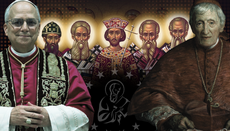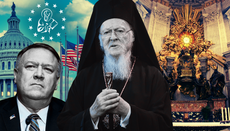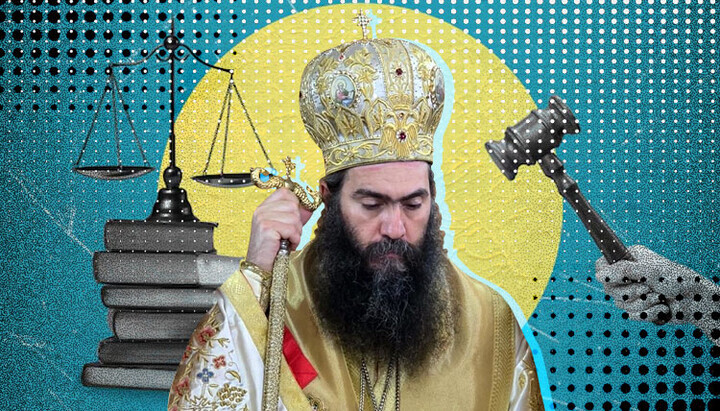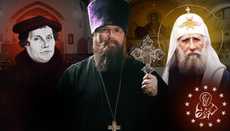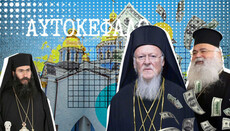Cultural Chauvanism: Woke in the Cloak of Orthodoxy
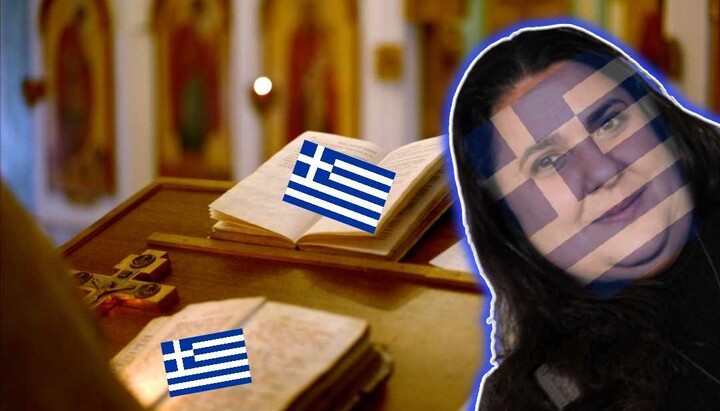
Public Orthodoxy's Katherine Kelaidis' claims that liturgical English is “xenophobic." An argument so bad, even their readers hated it.
Dr. Katherine Kelaidis published an article in Public Orthodoxy on March 12th titled Xenophobia in the Cloak of Progress, in which she claims that the Orthodox Church "is a church primarily brought to the United States by 20th and 21st-century immigrants." She goes so far as to suggest that anyone who prefers English in the Liturgy has "either intentionally or accidentally contributed to xenophobia."
Her solution? "In the long term, this should also mean that no priest can be ordained in America without proficiency in a second language."
You know it’s bad when even Public Orthodoxy’s readers rate the article at 1.7 stars.
Kelaidis argues that "in the late 1970s, as more converts from non-traditionally ethnic backgrounds, the overwhelming majority of them Anglophone, began joining the Orthodox Church, the use of liturgical English was presented as essential to missionary efforts, and a prevailing attitude arose that a parish that spoke English as its sole (or nearly sole) liturgical and communal language was more open, more welcoming, more ‘American’ than those so-called ‘ethnic parishes’ that allegedly kept people out by stubbornly clinging to their heritage language."
This is patently false.
It’s hard to believe Fordham University would allow such a historically illiterate statement on one of its websites. Then again, this is the same Kelaidis who wrote History Is Not Your Friend, in which she attempts to paint early Christians as modern progressives on sex and gender issues.
The push for English in the Liturgy was not spearheaded by "non-traditionally ethnic" Americans— as if Anglo-Americans are not an ethnic group. It was initiated by St. Tikhon of Moscow, then Archbishop of the Russian Orthodox Church in North America at the turn of the 20th century.
Before the first wave of Greek immigrants arrived between 1900-1910, Russians had already evangelized all of Alaska, where an authentic Alaskan Orthodox spirituality thrives to this day.
Kelaidis ignores this because it undermines her argument. Ironically, her cultural chauvinism forces her to "whitewash" history and "silence indigenous voices." Not very progressive of her.
By 1900, the Russian Church in North America had established cathedrals in San Francisco, New Orleans, and New York, where the North American Diocese seat moved in 1906. The American Church was diverse, with large populations of Syrian-Antiochians, Carpatho-Rusyns, and Serbs long before Greeks arrived. As early as 1895, Bishop Nicholas Ziorov blessed Isabel Hapgood to translate the Slavonic service texts into English, a project completed under St. Tikhon. The Hapgood Service Book is still used today in parishes across the country, and across Orthodox jurisdictions. St. Tikhon saw the Church in America as fundamentally missionary, not just a caretaker of immigrant communities. Yet Kelaidis ignores this, instead blaming supposed 1970s "nativism" for Orthodox Christians’ desire to worship in a language they understand.
Using the vernacular in Liturgy has nothing to do with assimilation and everything to do with the Great Commission. The Greeks once understood this. When they evangelized Moravia, Bulgaria, and Rus, they didn’t insist on Greek; they translated the Gospel and Liturgy— even inventing an alphabet to do so. The Russian Church continued this tradition. With the printing press, the Russian Synod translated Orthodox texts into over a hundred languages. St. Innocent of Alaska created an alphabet for the Aleuts and translated the Gospel and Liturgy, later doing the same for other tribes with unrelated dialects.
Without English liturgies, the American Church will die out. This isn't mere speculation; the Church has been in decline for decades. Only in the last five years has this terminal trajectory begun to stabilize—not because Greeks and Russians are returning to their faith and having more children, but because Americans are discovering Orthodoxy and joining in droves. Even with this influx of converts, the crisis is far from over. Within five years, roughly 25% of our parishes may be without a priest. Yet Kelaidis insists they must be bilingual?
If you want your children to become Protestant, by all means, stick to Greek and Slavonic. Children cannot absorb a faith they don’t understand—nor can they defend it later in life. I attend a small, ethnically Russian parish that was entirely Slavonic until a year ago. The Russians, by and large, oppose incorporating English. And yet, none of their children come to church. The few who remain Orthodox attend the English-language parish down the road. The rest? I saw them singing in the Slavic choir at the local Calvary Chapel Christmas concert in December.
Now, to be clear, I don’t oppose bilingual liturgies— God forbid! There are certainly communities where a liturgy in another language is completely warranted, and everyone should hear the Liturgy in their language. Slavonic is beautiful and maintaining cultural and historical connections is important. However, the essential and variable parts of the Liturgy should be in the language children understand— and that language, nearly without exception, is English.
At its core, Kelaidis' argument stems from a conflation of Hellenism and Orthodoxy. In her mind, English liturgies are not Greek, and therefore not truly Orthodox. This view extends to Orthodox Americans, who, in her estimation, are not fully Orthodox either. If we were, we would be enlightened progressive liberals.
